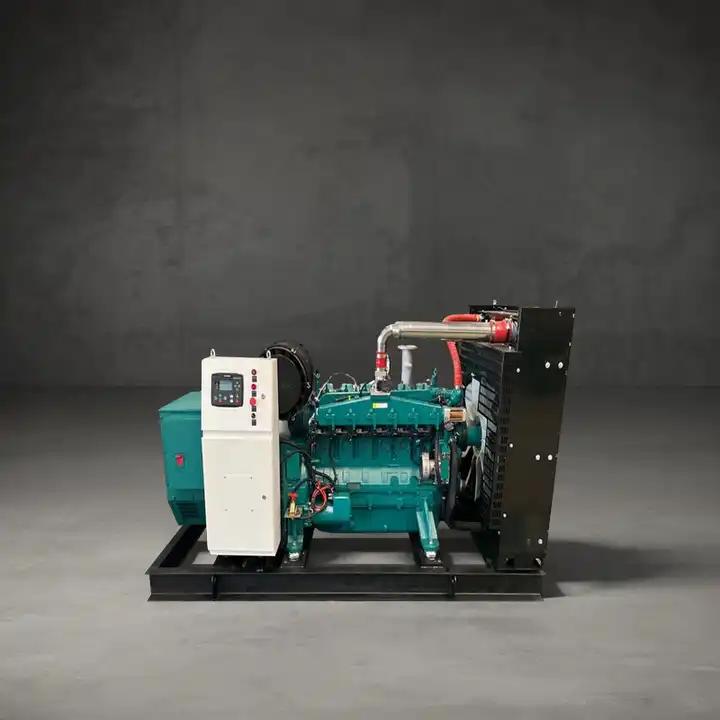Have you ever found yourself torn between choosing a natural gas generator and a diesel generator? It’s a common dilemma for many in the industrial sector. With reliability, cost, and environmental impact all in the mix, making the right choice can feel daunting.
Let me shed some light on this topic from my perspective as the CEO of Junwei Machinery. With our extensive experience in manufacturing and distributing high-quality generators worldwide, we’ve seen firsthand the pros and cons of both types of generators. Whether you’re considering efficiency, cost, or environmental impact, I’ve got insights that will help you make an informed decision.

What’s the Difference Between Natural Gas and Diesel Generators?
First things first, let’s break down the fundamental differences. Natural gas generators run on—you guessed it—natural gas. Diesel generators, on the other hand, run on diesel fuel. Each type has its own set of advantages and drawbacks, largely influenced by the fuel they use.
Natural gas is cleaner, producing fewer emissions. Diesel is known for its power and efficiency but can be noisier and more polluting. Understanding these basic differences is crucial as it sets the stage for a deeper comparison.
Efficiency: Which Generator Takes the Lead?
When it comes to efficiency, diesel generators have a strong reputation. They typically convert about 45% of the fuel’s energy into electricity, which is higher than their natural gas counterparts. See detailed efficiency comparisons here.
However, natural gas generators are catching up. They offer the advantage of continuous fuel supply via pipelines, eliminating the downtime associated with refueling diesel generators. Plus, the maintenance on natural gas generators is often simpler and less frequent.

Cost Considerations: Upfront and Long-Term
When evaluating costs, it’s important to look at both initial investment and ongoing expenses. Diesel generators usually have a higher upfront cost, but they are often cheaper to run in the long term.
Natural gas generators, while potentially more expensive initially, can save money over time due to lower fuel costs and less maintenance. Fuel availability and price stability also play a crucial role. Natural gas prices tend to be more stable compared to diesel, which can fluctuate significantly based on global oil markets. Check out the latest fuel price trends.
Environmental Impact: A Growing Concern
With increasing emphasis on sustainability, the environmental impact of generators is a critical factor. Natural gas generators emit significantly fewer pollutants, including NOx, CO2, and particulate matter. Learn more about emission comparisons.
Diesel generators, despite their efficiency, are notorious for higher emissions. Advances in technology have led to cleaner diesel engines, but they still lag behind natural gas in terms of environmental friendliness. For companies focused on reducing their carbon footprint, natural gas is often the preferred choice.

Reliability and Performance: What to Expect?
Reliability is a key concern, especially in critical applications. Diesel generators are renowned for their robust performance and reliability in harsh conditions. They can handle heavy loads and provide consistent power over extended periods.
Natural gas generators, while reliable, may not always perform as well under extreme conditions. They are more susceptible to supply interruptions, especially in areas without well-established natural gas infrastructure. That said, advancements in technology are steadily improving their performance and reliability.
Noise Levels: Quiet Operation Matters
In urban and residential areas, noise levels can be a significant concern. Diesel generators are typically louder, which can be a problem in noise-sensitive environments. Natural gas generators, however, operate more quietly, making them a better choice for settings where noise pollution must be minimized. Explore generator noise level data.

Maintenance: Keeping Your Generator Running Smoothly
Maintenance is another critical factor. Diesel generators, while powerful and efficient, require more frequent and detailed maintenance. This includes regular oil changes, filter replacements, and system checks.
Natural gas generators tend to have longer intervals between maintenance sessions. This is partly because natural gas burns cleaner than diesel, resulting in less residue and wear on engine components. Over time, this can translate to significant savings in maintenance costs and less downtime.
Conclusion
Choosing between a natural gas generator and a diesel generator depends on your specific needs and priorities. If efficiency, reliability under extreme conditions, and long-term cost are your main concerns, a diesel generator might be the way to go. If environmental impact, noise level, and fuel stability are more critical, then a natural gas generator could be your best bet.
In the end, both types of generators have their place in the industrial landscape. At Junwei Machinery, we offer a range of both natural gas and diesel generators, tailored to meet the diverse needs of our clients. Whether you’re looking for robust power or eco-friendly solutions, we’ve got you covered.

If you have any questions or need further advice, feel free to reach out. We’re here to help you make the best choice for your power generation needs.

